Home » M.Sc Molecular Biology & Genetic Engineering
Explore the distinctive and research-focused M.Sc Programme at SIBB R&D, a program that stands out for its specialization and uniqueness. SIBB R&D holds the distinction of being the only private sector biotech institute recognized by the DSIR, Government of India. This recognition underscores our commitment to excellence and innovation in the field of biotechnology.
Our institute boasts cutting-edge research labs in Molecular Biology, Biochemistry, Genetic Engineering and Animal Cell Culture, operational and leading in innovation since 2007. Our team of expert scientists engages in pivotal research, tackling molecular mechanisms of diseases such as diabetes and cancer and advancing the development of natural products with indigenous processing technologies. Key areas of focus include the production and characterization of recombinant proteins and drugs, molecular diagnosis of viral diseases and gene expression quantification through qPCR. The program is uniquely designed to provide comprehensive practical training, encouraging students to embark on original research projects and nurturing an entrepreneurial approach in biotechnology.
DSIR, GOI Recognized research center

Cutting Edge – Biotechnology Research

Funded Projects,
Products, Patents

100% Pass percentage
DSIR,GOI recognized research center
Cutting Edge Biotechnology Research
Funded Projects, Products,Patents
100% Pass percentage

SIBB R&D is Recognized by the Department of Scientific and Industrial Research (DSIR)

Approved Research Centre of Anna University

Approved Research Centre of Kerala University of Health Sciences
The M.Sc Programme is research oriented, highly specialized and unique. SIBB R&D is the only biotech institute in the private sector to be recognized by DSIR, Government of India.
The institute has well-equipped research labs of Molecular Biology, Biochemistry, Genetic Engineering and Animal cell culture functioning since 2007. An efficient team of scientists have been conducting research on molecular mechanism of drug action with reference to diabetes, cancer, wound healing,etc. and development of natural products by designing indigenous processing technologies, production and characterization of recombinant proteins and drugs, molecular diagnosis of viral diseases and quantification of gene expression by qPCR.
Course of study will be extended over a period of two academic years under four semester system. Precisely, the course has a structure of nine theory papers and three practical papers which will be completed at the third semester. The fourth semester is exclusively for research leading to the submission of thesis. It includes two parts: thesis evaluation and viva voce by an expert committee nominated by the university.
Each candidate shall submit a dissertation in four copies of the research project undertaken by him/her at the end of 4th semester to the University for valuation.
This shall be held at the end of the 4th semester and shall cover all the topics of course along with the presentation of the dissertation work.
For a pass a candidate must obtain a minimum of 50% in each paper, internal assessment and external examination taken together. Those who fail in any paper need to appear for re-examination in that paper only. A candidate may be declared to have passed the degree course in second class if he/she obtains an aggregate of less than 60% of marks in all papers taken together, in first class if he/she obtains an aggregate of 60% or more marks in all papers taken together provided one completes all papers in the first attempt and in first class with distinction if he/she gets 75% or more marks in aggregate of the total marks in the first attempt.
| Papers | Subjects |
|---|---|
| BS030101 | Fundamental Genetics |
| BS030102 | Molecular organization of Chromosome; Theory of Heredity |
| BS030103 | Molecular structure of Nucleic Acid; Gene Regulation & Expression |
| BS030104 | Biochemistry & Genetics -Practical-I |
| Papers | Subjects |
|---|---|
| BS030201 | Biomolecules- Synthesis, Structure and Metabolism |
| BS030202 | Molecular analysis of Biomolecules |
| BS030203 | Oncogenes, Immunopathogenisis and Diagonostics. |
| BS030204 | Microbiology, Immunology & Molecular biology -Practical-II |
| Papers | Subjects |
|---|---|
| BS030301 | Genetic Engineering, Bioethics & IPR |
| BS030302 | Trangenics- Animals and plants. |
| BS030303 | Genomics & Proteomics. |
| BS860301 | Elective paper-1, Concepts and Methods of Research |
| BS030304 | PCR technology, Bioinformatics, Animal Cell & Tissue culture techniques -Practical-III |
| BS860402 | Elective paper-2, Molecular Markers & Genome Analysis |
|---|---|
| BS860403 | Elective paper-3, Biotechnology Entrepreneurship |
| BS030401 | Research Practical Training |
| BS030402 | Research Course work & Research Project |
| BS030403 | Paper Presentation & Comprehensive Viva-Voce |

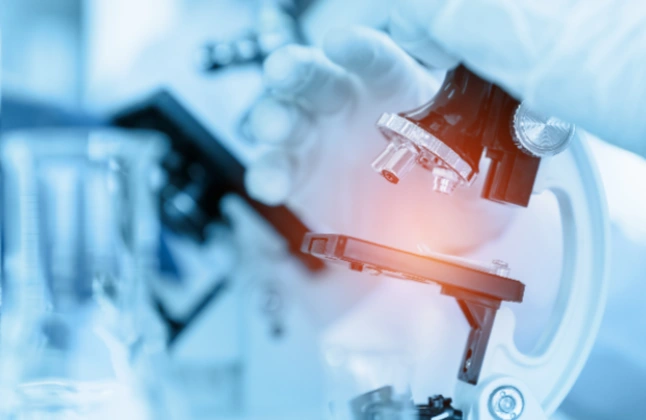




Best-in-class content by leading faculty and industry leaders in the form of videos, cases and projects.
Fundamental Genetics: Understand the basics of genetics, including Mendelian inheritance, genetic variation and its application in human diseases, evolution, and biodiversity.
Molecular Structure and Analysis of Nucleic Acids: Gain knowledge of DNA and RNA structures and functions and master techniques like electrophoresis, PCR and bioinformatics for nucleic acid analysis.
Molecular Organization of Chromosomes and Theory of Heredity: Learn about chromatin structure, epigenetics, chromosome behavior and heredity theories, essential for gene mapping and genetic analysis.
Biomolecules – Synthesis, Structure, and Metabolism: Explore the synthesis and metabolism of key biomolecules, understand enzyme kinetics and metabolic pathways and their relevance to metabolic disorders.
These skills open doors to careers in molecular biology and genetic engineering, including research, teaching, quality control, production and marketing.
Passionate Biotechnologists: Ideal for those eager to harness biotechnology’s power, this program offers in-depth knowledge and advanced skills for making impactful strides in agriculture, pharmaceuticals, and environmental conservation.
Future Research Pioneers: Designed for aspiring researchers, our program provides hands-on lab experience and expert guidance to develop your research skills, preparing you for significant contributions in molecular biology.
Science Visionaries: If you’re driven by scientific innovation for a better future, this M.Sc program will equip you with the tools to conduct pioneering research and create transformative solutions in botany and biotechnology.
Career Aspirants in Genetics: Perfect for those targeting a career in genetics, our interdisciplinary approach ensures a comprehensive education, aligning with industry needs and preparing you for various genetic research and biotechnological roles.
Graduates in Biotechnology, Bioinformatics, Agriculture, Biophysics, Biochemistry, Chemistry, Botany, Zoology, Microbiology and other Biological Sciences from a university recognized by UGC are eligible. Graduates of Biomedical Engineering and Biotech Engineering can also apply. Selection of the candidates will be done as per the rules and regulations of M. G University, Kottayam.

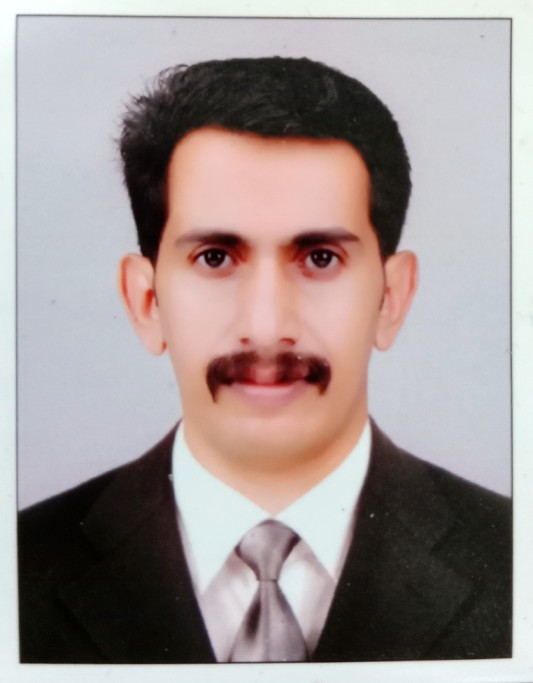
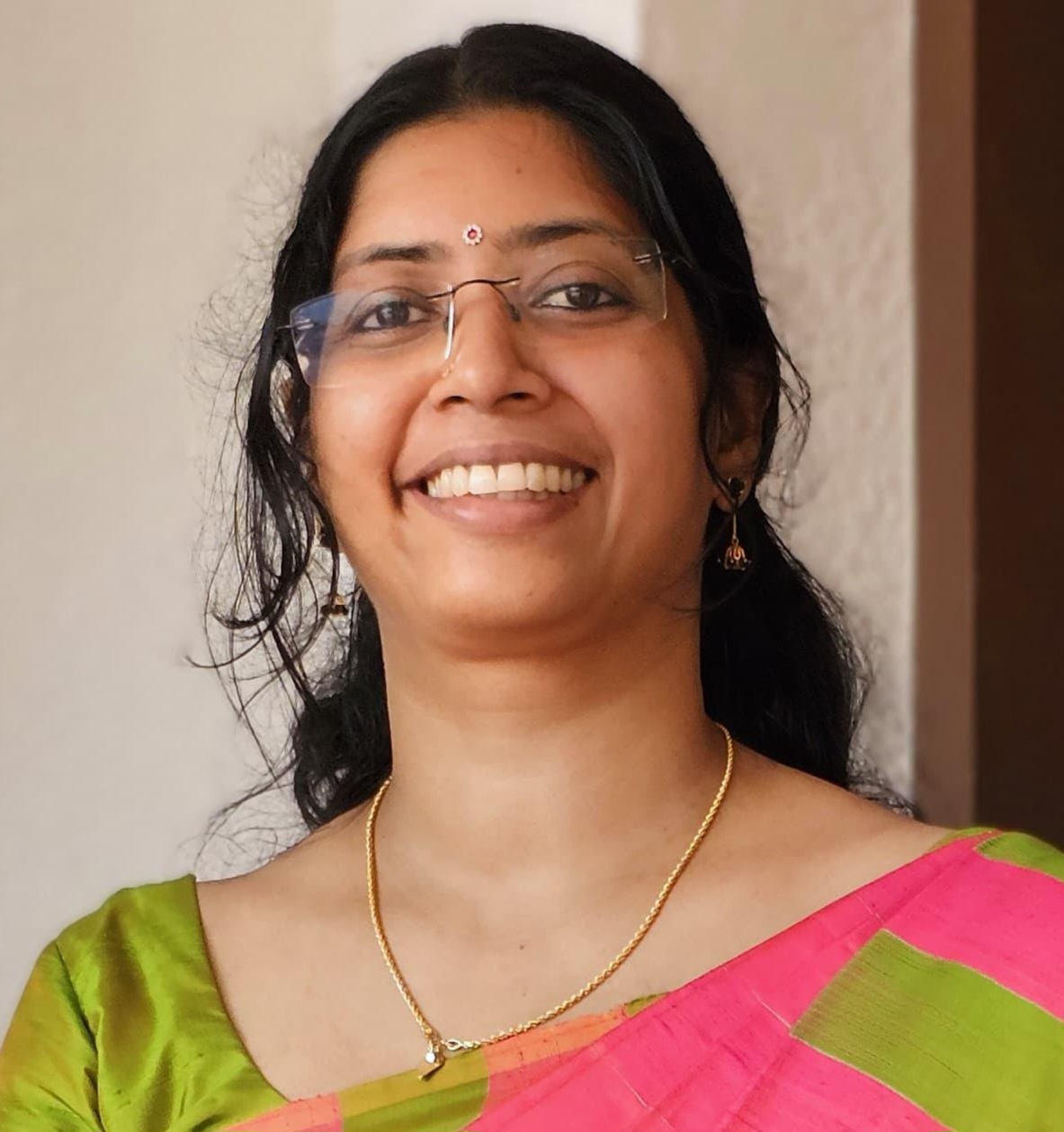
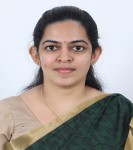
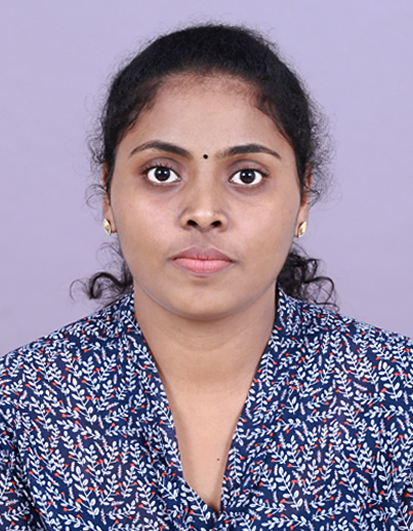
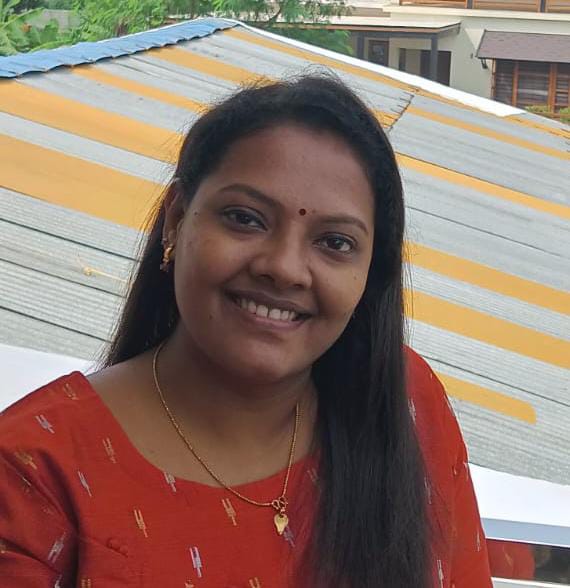
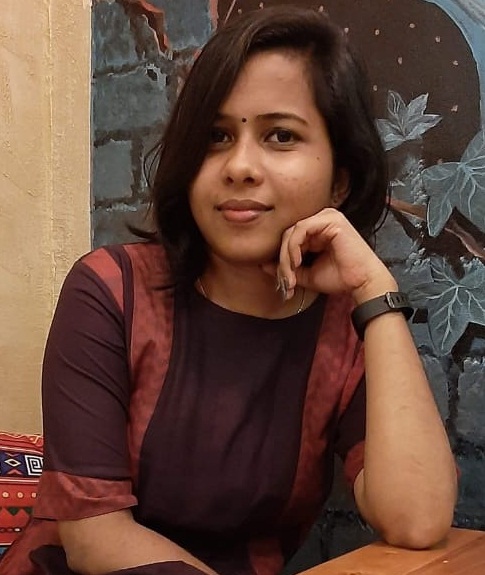
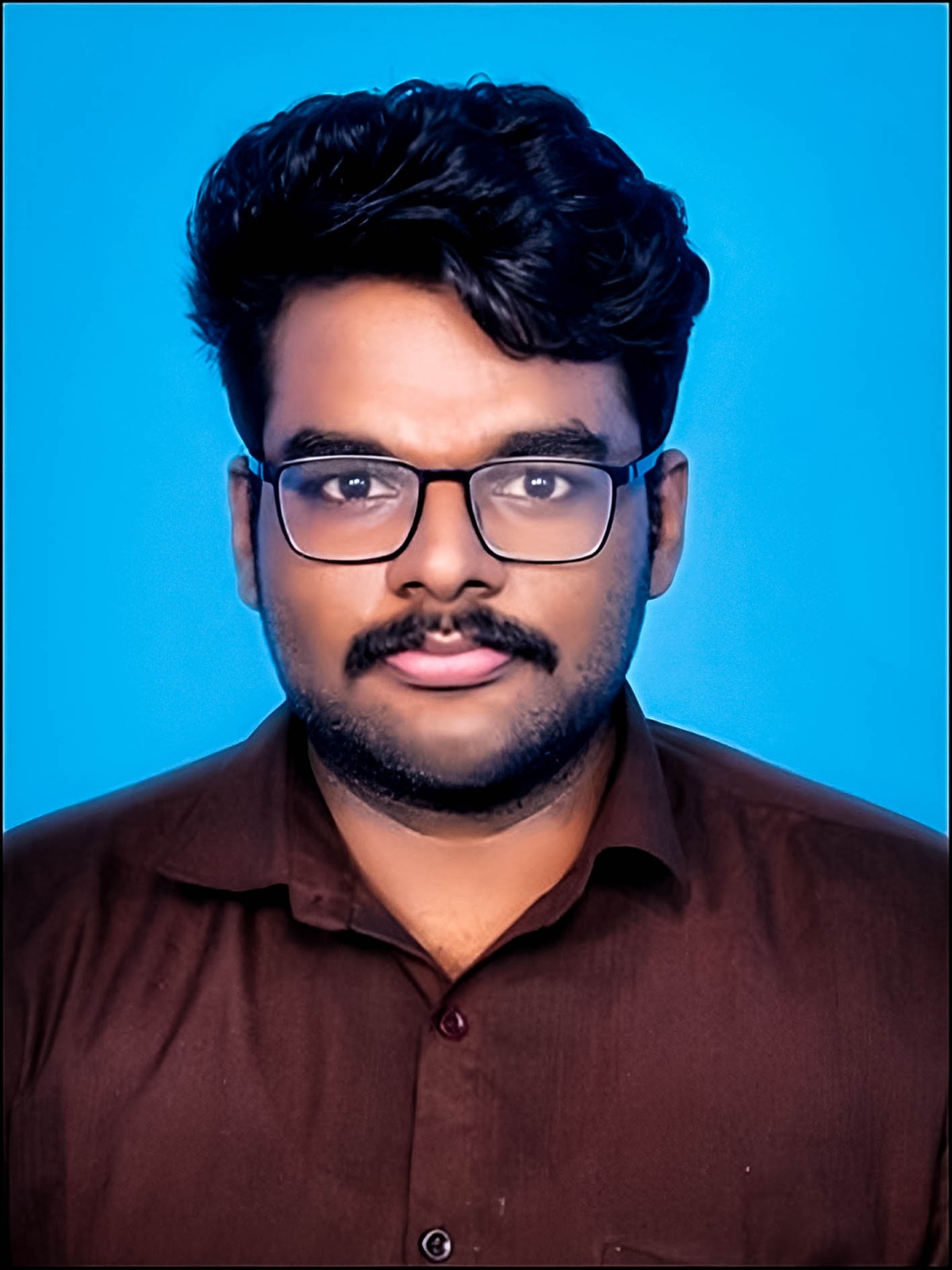
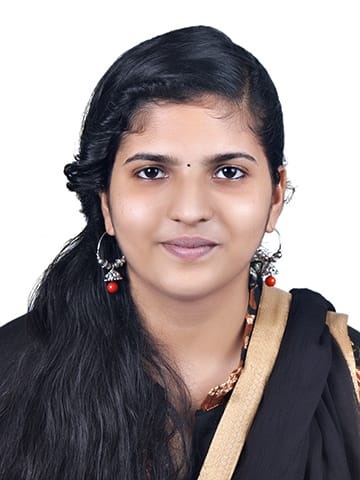
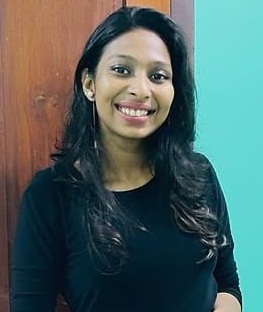




State-of-the-art laboratories and research facilities provide students with access to advanced technologies.
Expert faculty members bring industry experience and research expertise to deliver quality education.
State-of-the-Art laboratories and research facilities provide students with access to advanced technologies
Expert faculty members bring industry experience and research expertise to deliver quality education.
The curriculum focuses on industry needs, incorporating relevant topics and practical skills.
Ample research projects and collaborations foster critical thinking and problem-solving skills.
The curriculum focuses on industry needs, incorporating relevant topics and practical skills.
Ample research projects and collaborations foster critical thinking and problem-solving skills.
Strong ties with industry partners offer internships and exposure to real-world applications.
SCMS Group of Educational Institutions is a national leader in higher education especially in the fields of Management
Strong ties with industry partners offer internships and exposure to real-world applications.
SCMS Group of Educational Institutions is a national leader in higher education especially in the fields of Management
Students present research findings at conferences, fostering networking and visibility.
Inclusive and supportive, the college promotes personal growth and extracurricular activities.
Students present research findings at conferences, fostering networking and visibility.
Our goal is to provide a nurturing and inclusive atmosphere that promotes your personal growth and academic success.
At SSTM, the faculty has total freedom to choose the method that is best suited for the session. A variety of teaching and learning techniques are employed to impart knowledge and skills.
Lectures, case analysis, simulation games and exercises, syndicates, group discussions, video sessions, team projects, game plays, quiz programmes or computer simulations and practical project work are commonly used. These help develop conceptual, analytical and decision making skills and prepare students to face the challenges of the complex business and organizational environment. Students have the opportunity to work one-on-one with the faculty. Special attention is bestowed when core courses are taught.
This is a novel approach for betterment of education. Immediately after admission, the students are divided into groups of 8 or 10. Each group is assigned to a faculty member who will be their mentor for the remaining two years.
The groups meet to assess, analyse and rehearse. Skills are honed, programmes prepared and issues are discussed. Members of the groups prepare and make presentations. The assigned faculty member closely monitors activities of the group and provides necessary guidance.
This programme help students shed their inhibitions, develop communication skills and become good orators. It effectively supplements personality development programmes conducted at regular intervals by renowned experts at the campus
At SSTM, our MBA programme is re-engineered to be based as close as possible to the real-world criteria. Our faculty will apply their innovative professional expertise to help students assess, develop and apply all the managerial skills, which will make them effective managers.
As part of the teaching system, we conduct interface sessions periodically called Institute Industry Interaction (III) by inviting practising managers of different disciplines. These lively sessions help students familiarise with problems that a manager faces and solutions he arrives at in real-life situations
The invited industry leaders also help build rapport with students, making every session a rewarding experience for both.
The instructors will have the freedom to decide the criteria for internal evaluation of each course. However, the assessment criteria can include, internal assessment tests, assignments, project work, group / individual class presentations, case studies, seminars, attendance and class participation. The instructor will make available on LAN clear guidelines regarding the assessment criteria to the class before the commencement of the course. The internal assessment results will be published on the notice board and the students will be given at least a week to have clarifications, if any, before the external examination for the semester.
For all the courses, a written examination of the duration of three hours would be conducted at the end of each semester. Each examination carries a maximum of 60 marks. The end term examination is conducted by the Mahatma Gandhi University.
In case a candidate fails to secure the required minimum of 50 percent marks in the internal assessment, one may secure it by repeating the course altogether in a regular class in a subsequent semester. However, such improvement in sessionals for a course cannot be attempted more than once.
The minimum marks required for a pass in the MBA Programme is 50 percent.
Candidates who have secured not less than 60 percent marks in aggregate for all the four semesters shall be declared to have passed MBA degree examination in First Class. Candidates who have secured not less than 80 percent marks in aggregate for all the four semesters shall be declared to have passed MBA degree examination with Distinction. Candidates for the MBA degree shall be eligible to undergo the course of study in the subsequent semester and take the examination of that semester irrespective of the examination results of the previous semester, provided they have completed all the formalities of attendance, payment of all fees due to the University and registration for the examination in the earlier semesters.
No student shall be allowed to appear in the University examination of a course if he/she has not secured 75 percent of attendance for each course during semester.
HR CLAN
Students who are specialising in Human Resource Management become members of HR Clan. They conduct surveys on HR perspectives, seminars, and also undertake specifi assignments on behalf of the industry.
MARKETING GRID
Marketing Grid is an association of the management students of SCMS group having the following objectives:
The Grid organizes weekly meetings with practicing managers.
PANORAMA
Panorama is an annual management meet of students. This two-day event brings together noted professionals in the areas of Finance, HR, Systems and Marketing
FINANCE FORUM
The Finance Forum is a forum of students who have an interest in the fi of fi The Finance Forum regularly organises seminars and lecture meetings with experts from the industry. Some of the issues discussed in the recent past are the National Budget, Credit Policy, Stock Exchange Simulations and Corporate Health.
Graduates in Biotechnology, Bioinformatics, Agriculture, Biophysics, Biochemistry, Chemistry, Botany, Zoology, Microbiology and other Biological Sciences from a university recognized by UGC are eligible. Graduates of Biomedical Engineering and Biotech Engineering can also apply. Selection of the candidates will be done as per the rules and regulations of M. G University, Kottayam.
The Director, SCMS School of Technology and Management (SSTM),
Prathap Nagar, Muttom, Aluva, Cochin Pin – 683016.
Phone – +91 484 2623803
Email – directorsibb@scmsgroup.org







SCMS provides modern laboratories, advanced equipment, and research facilities, ensuring you have access to cutting-edge resources for hands-on learning and research.
SCMS provides modern laboratories, advanced equipment, and research facilities, ensuring you have access to cutting-edge resources for hands-on learning and research.
SCMS is led by a dedicated team of leaders who provide guidance, support, and drive the institute’s mission of academic excellence and research-driven education.
Alongside the core curriculum, SCMS emphasizes the development of managerial and technological skills, equipping you with a well-rounded education that prepares you for the challenges of the professional world.
SCMS boasts a committed faculty team comprising experienced professors, researchers, and industry experts who provide quality education, mentorship, and guidance throughout your academic journey.
SCMS maintains a disciplined environment that fosters a strong focus on academic pursuits, creating an atmosphere conducive to learning, research, and personal growth.
SCMS conducts Open House events where prospective students can visit the campus, interact with faculty, and get a glimpse of the institute’s facilities and academic programs, helping them make informed decisions.
SCMS offers a valuable educational experience with its well-designed curriculum, research opportunities, industry collaborations, and career support services, ensuring that your investment in education yields long-term benefits for your future.